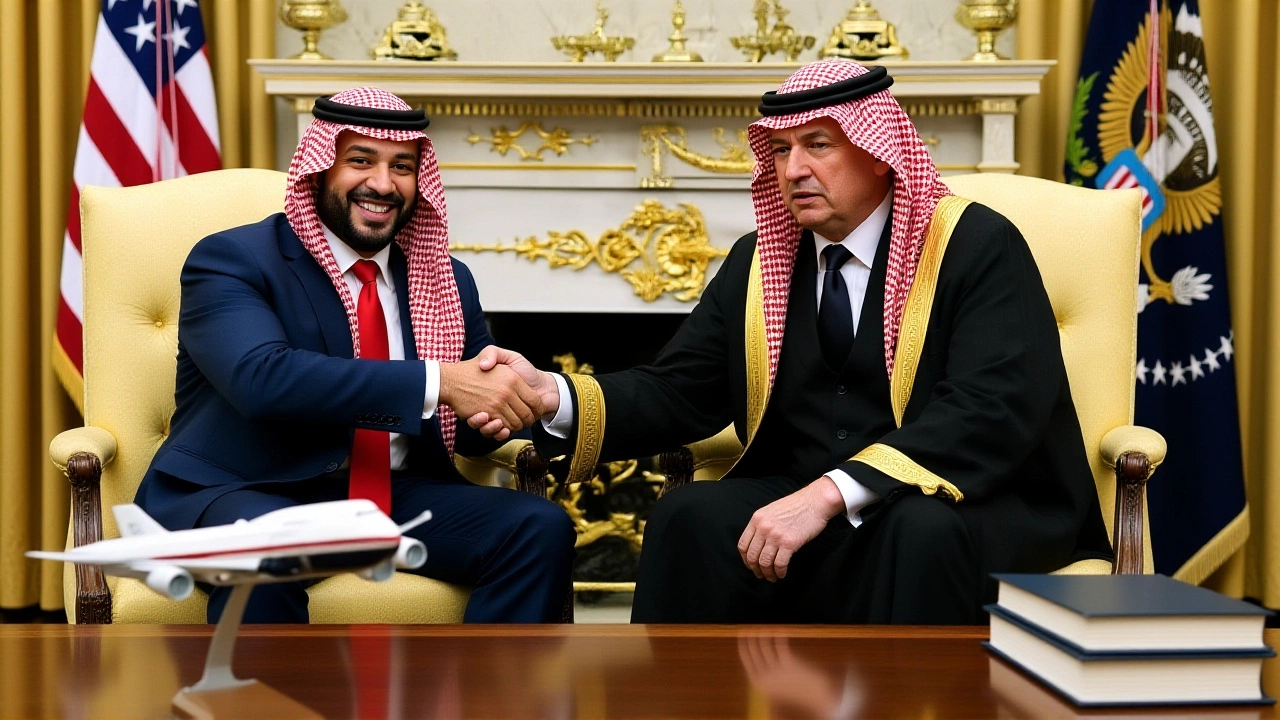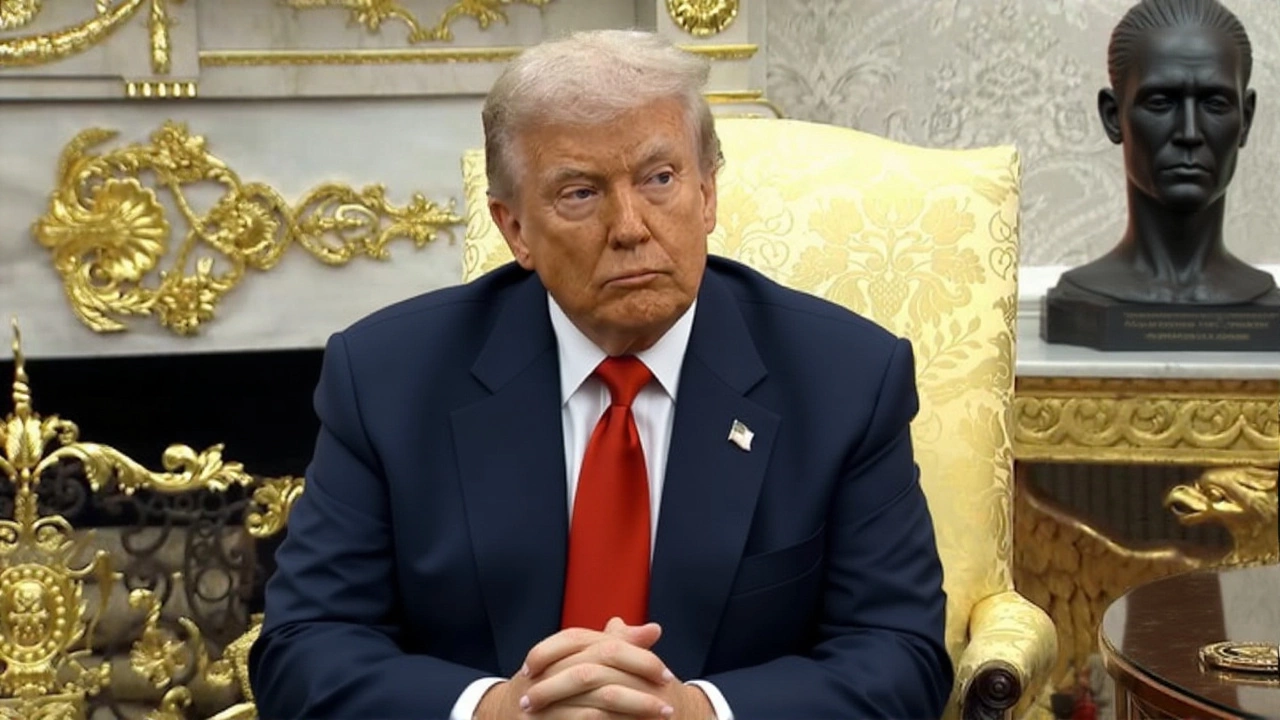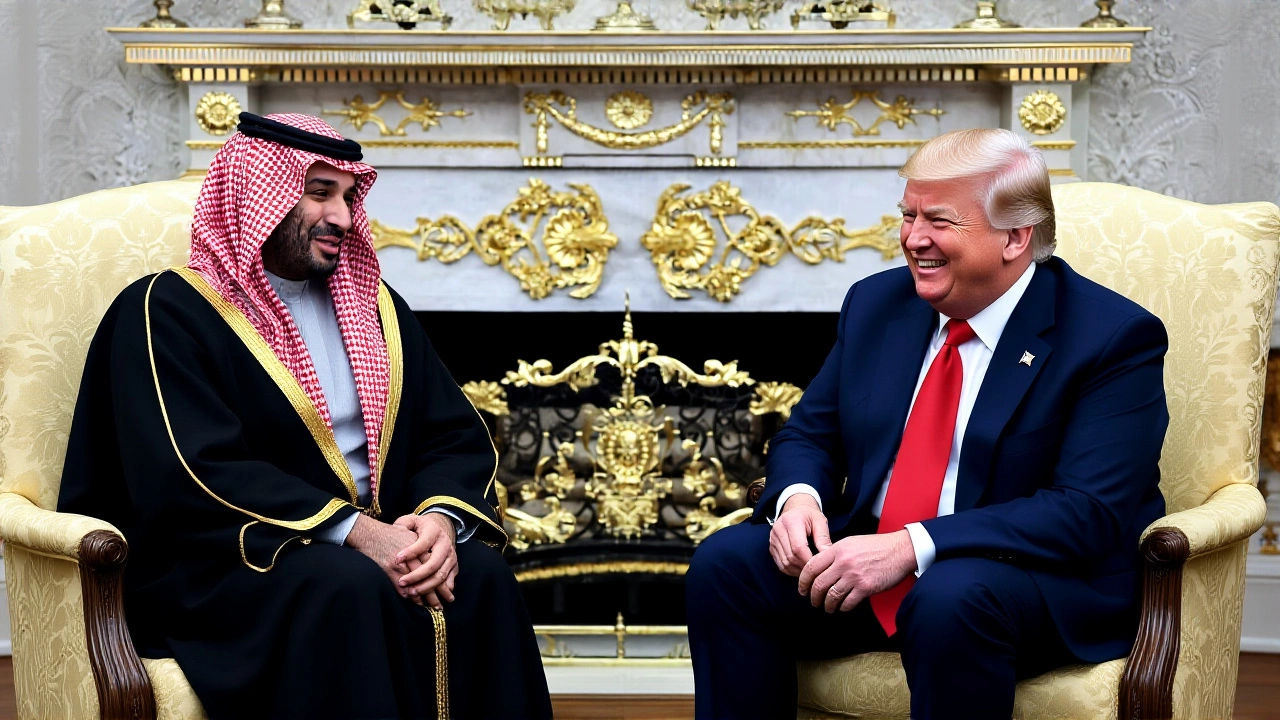When Donald J. Trump stood at the podium in Cedar Rapids, Iowa, on November 15, 2025, and called Jamal Ahmad Khashoggi a "bad person," he didn’t just insult a dead journalist—he overturned years of U.S. national security consensus. The moment, captured on video and later analyzed by Politico, directly contradicted the February 26, 2021, declassified assessment by the Office of the Director of National Intelligence that concluded, with high confidence, that Mohammed bin Salman Al Saud, the Crown Prince and Prime Minister of the Kingdom of Saudi Arabia, had approved the operation that led to Khashoggi’s murder inside the Saudi consulate in Istanbul. It wasn’t just a political gaffe. It was a deliberate rejection of the intelligence that had shaped U.S. policy for seven years.
What the Intelligence Really Said
The U.S. intelligence community didn’t just suspect Mohammed bin Salman’s involvement—it was certain. The 2021 ODNI report, compiled by the CIA, FBI, NSA, and DIA, laid out a chain of command: 15 operatives, including Maher Abdulaziz Mutreb and Salah Mohammed al-Tubaigy, were dispatched to Istanbul on orders from Saud al-Qahtani, a top aide to the Crown Prince. The report noted MBS’s "absolute control" over Saudi security and decision-making. Even Turkey’s MIT and Germany’s BND corroborated the findings. The UN’s Special Rapporteur, Agnes Callamard, concluded in 2019 that Saudi Arabia must investigate MBS himself. Yet Trump dismissed it all: "These things happen," he said, as if Khashoggi’s dismemberment were a routine business dispute.The Sanctions That Were—and Weren’t—Imposed
In November 2018, just weeks after Khashoggi’s murder, the U.S. Department of the Treasury acted. Under the Global Magnitsky Act, it froze $2.3 million in assets and imposed visa bans on 17 Saudi individuals. But not one senior official—no ministers, no royal family members above mid-level rank. The message was clear: punish the foot soldiers, protect the architect. The State Department claimed at the time it had "punished those responsible." But the truth? The sanctions were symbolic. They didn’t touch MBS. They didn’t halt arms deals. And they didn’t stop the $270 million in property purchases by Saudi entities from Trump’s own businesses between 2015 and 2020.Why This Matters Now
Trump’s November 2025 remarks didn’t come out of nowhere. They’re part of a pattern. His 2025 campaign has leaned heavily on foreign investment pledges from Gulf states, and Saudi Arabia is a key player. But this isn’t just about money. It’s about credibility. The U.S. intelligence community has spent decades building trust with allies—Turkey, Germany, Canada—by standing by facts, even when they’re inconvenient. Now, a former president is openly undermining that. The State Department responded on November 17, 2025, with a terse statement: "We stand by our 2021 assessment." But words won’t undo the damage. European allies are already privately questioning whether Washington can be trusted on human rights. And Turkey, which convicted eight Saudis in absentia in 2022, is watching closely.
The Ripple Effects
The economic fallout from Khashoggi’s murder was real. In 2019, Saudi arms purchases dropped 12% year-over-year, costing U.S. defense giants Raytheon Technologies (now RTX) and Lockheed Martin Corporation an estimated $850 million in lost contracts. That’s not a rounding error—it’s a signal. When the U.S. draws a line, even a faint one, markets respond. But if Trump returns to power, that line could vanish. The Khashoggi Ban Act, introduced in 2023, mandates automatic sanctions on any foreign official found responsible for journalist killings. If enacted under a Trump administration, it would require implementation within 90 days of inauguration. But with Trump openly defending MBS, the odds of enforcement are slipping.What Comes Next?
On December 1, 2025, the Senate Foreign Relations Committee, chaired by Senator Ben Cardin (D-MD), will hold a hearing on U.S.-Saudi relations. The committee has already received classified briefings confirming MBS’s role. But will they act? Or will partisan politics silence them? Meanwhile, The Washington Post, where Khashoggi wrote his final columns, continues to push for accountability. Its editorials have called Trump’s remarks "a betrayal of journalistic values." And in Riyadh, the Crown Prince’s office remains silent—knowing full well that the world is watching.
Why This Isn’t Just About Saudi Arabia
This case isn’t about one murder. It’s about whether powerful nations can murder critics and walk away unpunished—if their allies are willing to look away. The U.S. once led the global fight for press freedom. Now, it’s being led by a former president who calls a murdered journalist a "bad person." That’s not just policy. It’s a moral reset. And the world is taking note.Frequently Asked Questions
How does Trump’s defense of MBS affect U.S. credibility on human rights?
Trump’s public dismissal of U.S. intelligence undermines decades of diplomatic trust. Allies like Germany, Canada, and Turkey rely on U.S. leadership in press freedom and accountability. When a former president openly contradicts findings from the CIA, NSA, and even foreign agencies, it signals that U.S. commitments are conditional—based on political convenience, not principle. This weakens future efforts to sanction abuses in other countries.
Why weren’t higher-level Saudi officials sanctioned after Khashoggi’s murder?
The 2018 Treasury sanctions targeted mid-level operatives, not decision-makers, due to geopolitical pressure. The U.S. feared losing access to Saudi intelligence cooperation and jeopardizing arms deals worth billions. Even the State Department admitted the sanctions were "limited." No one above the rank of deputy minister was named—despite intelligence confirming MBS’s direct authorization. This selectivity was widely criticized as prioritizing economic interests over justice.
What is the Khashoggi Ban Act, and how could it be triggered?
The Khashoggi Ban Act, passed in 2023, requires the U.S. president to impose sanctions on any foreign official found responsible for the killing or severe abuse of journalists. If Trump wins the 2024 election, the law mandates sanctions within 90 days of inauguration. But with Trump already defending MBS, enforcement is unlikely. The act’s effectiveness hinges on political will—and right now, that will appears absent.
How did the murder impact U.S.-Saudi defense contracts?
After the 2018 murder, Saudi Arabia reduced arms purchases by 12% in 2019, costing U.S. firms like Lockheed Martin and RTX an estimated $850 million. The drop wasn’t just moral—it was strategic. Riyadh began diversifying suppliers, including deals with France and South Korea. While contracts rebounded slightly by 2022, the trust gap remains. Any future U.S. administration that ignores Khashoggi’s murder risks long-term erosion of defense industry leverage in the Gulf.
What role did The Washington Post play after Khashoggi’s death?
The The Washington Post, owned by Jeff Bezos’s Nash Holdings, became the global voice for Khashoggi’s legacy. It published his final columns, pushed for investigations, and funded a $2 million journalism fellowship in his name. The paper’s relentless reporting kept international pressure on Saudi Arabia, even as U.S. officials downplayed the case. Its stance contrasted sharply with the Trump administration’s silence—and now, its active defense of the perpetrator.
Is there any chance MBS will face international justice?
Currently, no international court has jurisdiction over MBS. Turkey’s 2022 in-absentia convictions carry no enforcement power. The International Criminal Court lacks authority unless the UN Security Council refers the case—and the U.S. and Russia would veto it. Without a change in U.S. policy or a new global coalition, MBS remains untouchable. The only real leverage is economic: sanctions, arms embargoes, and diplomatic isolation.




